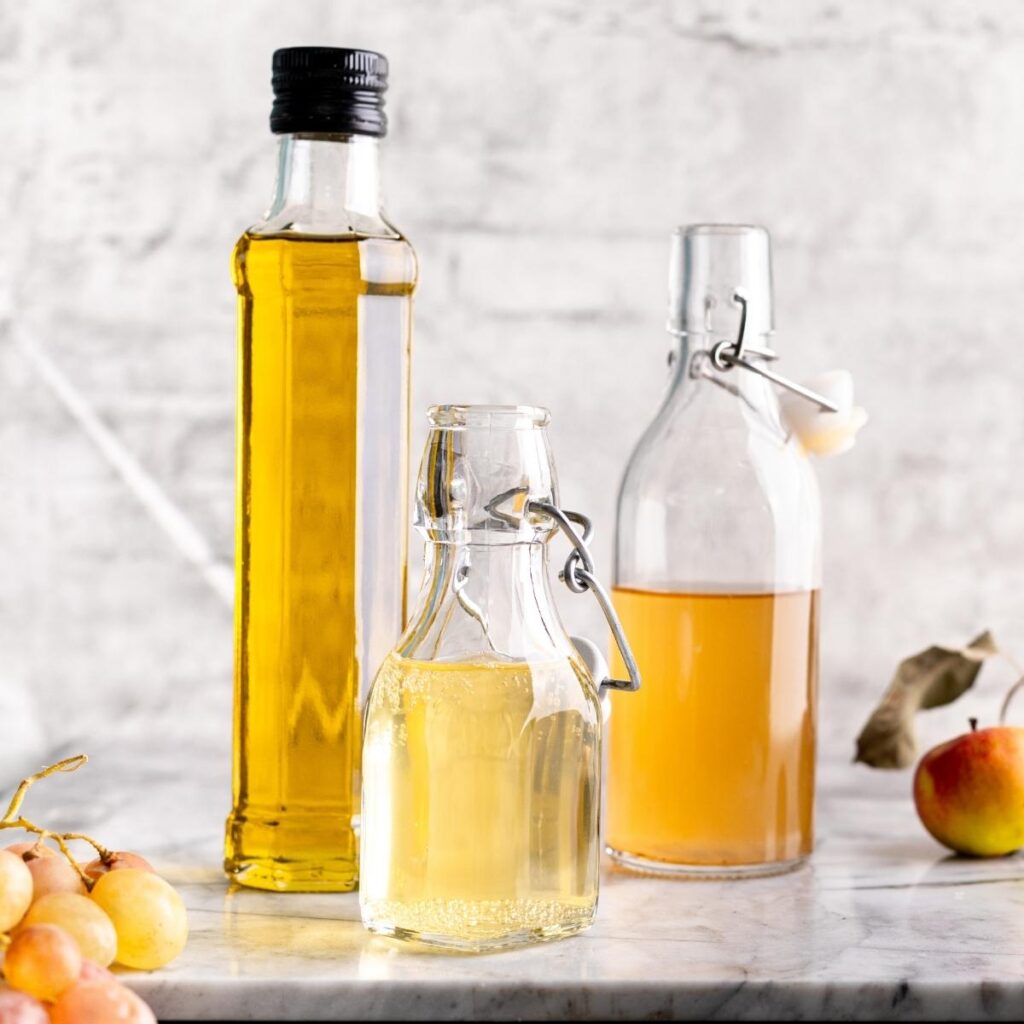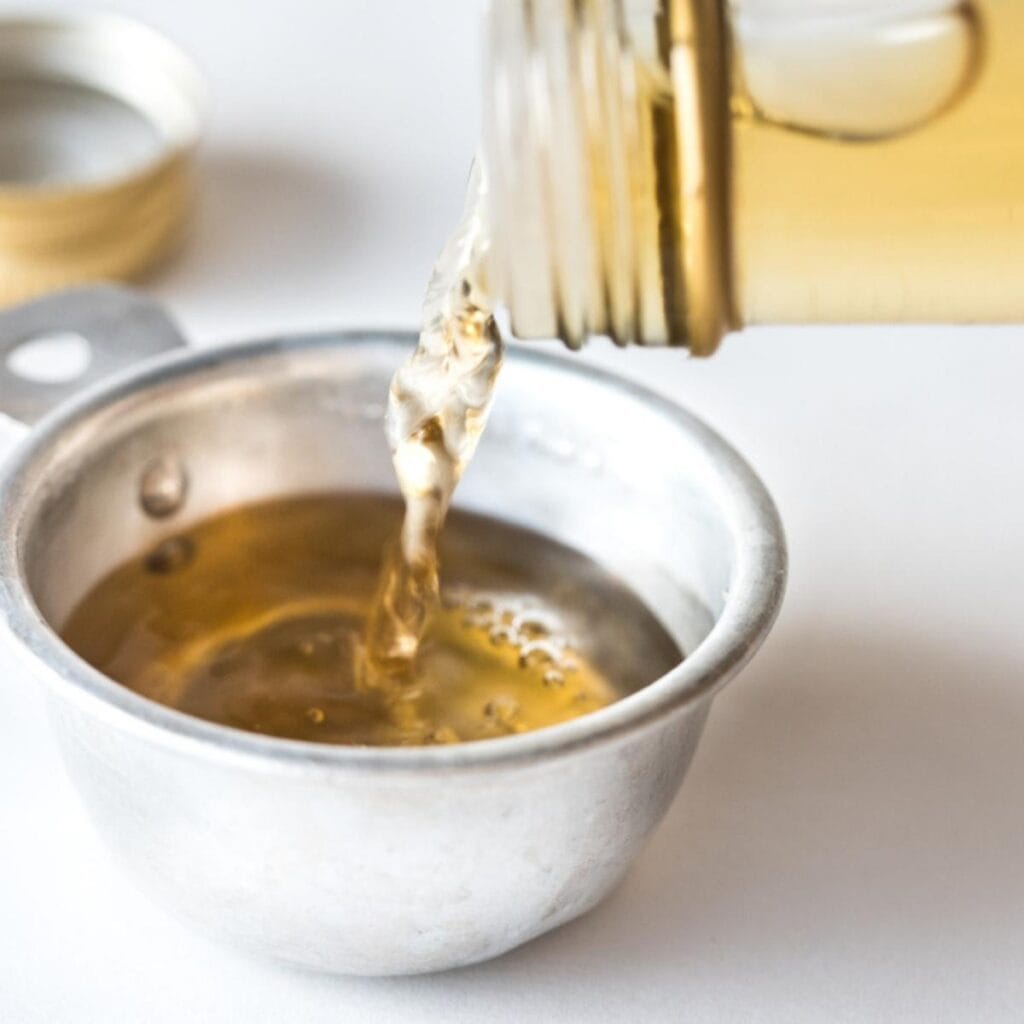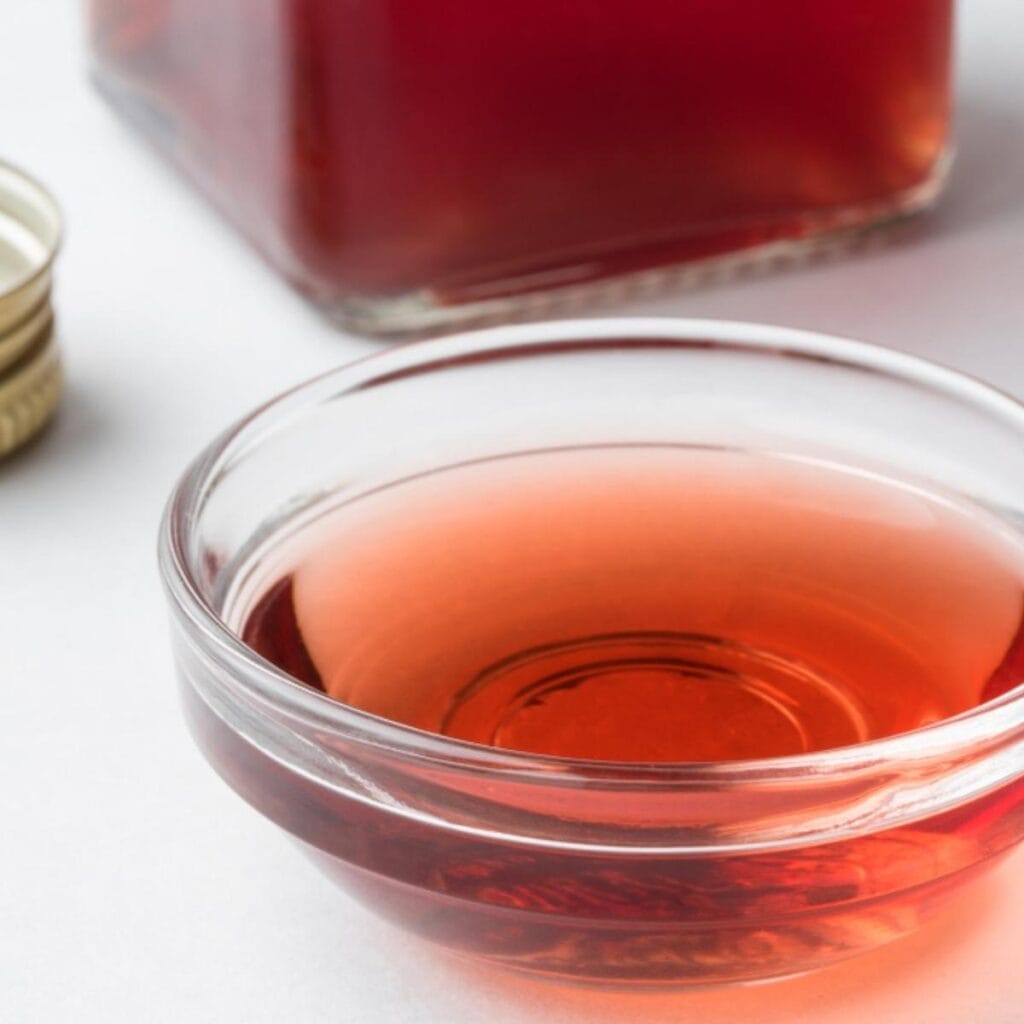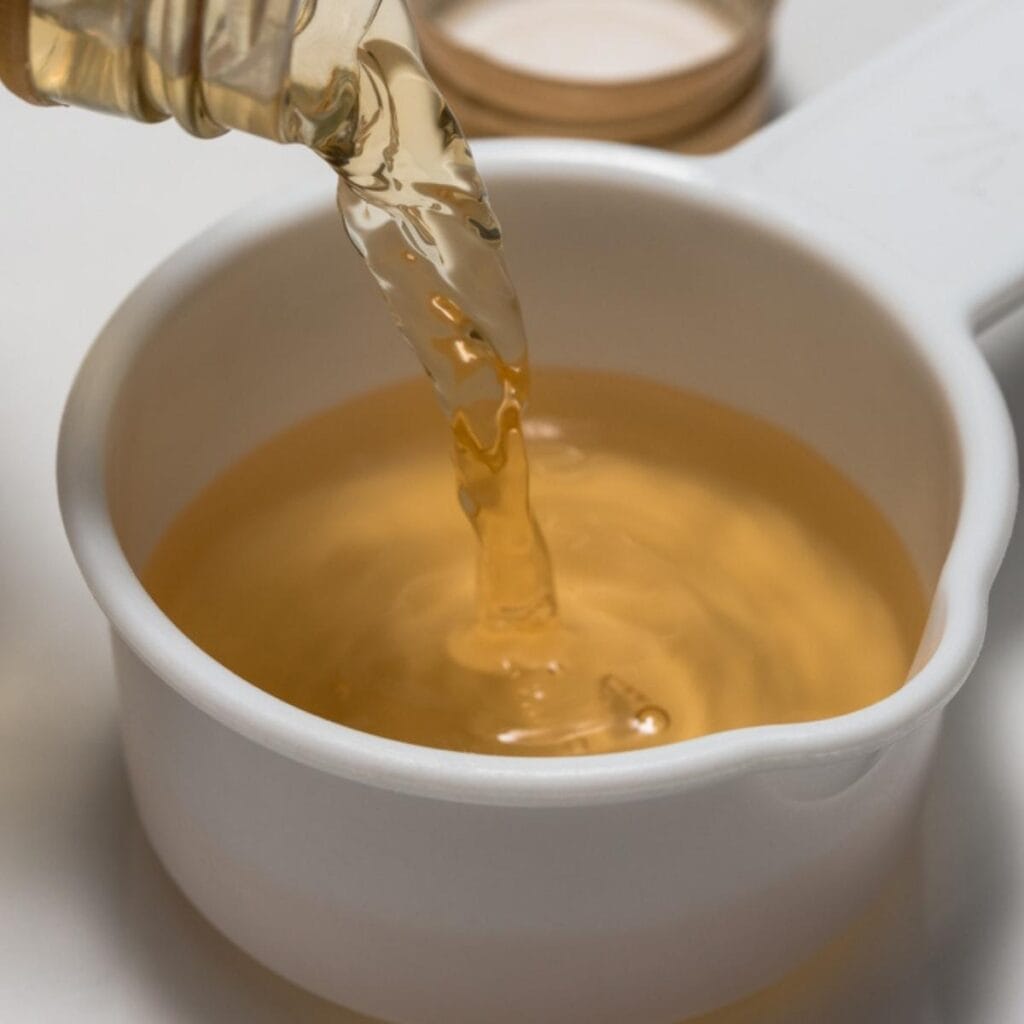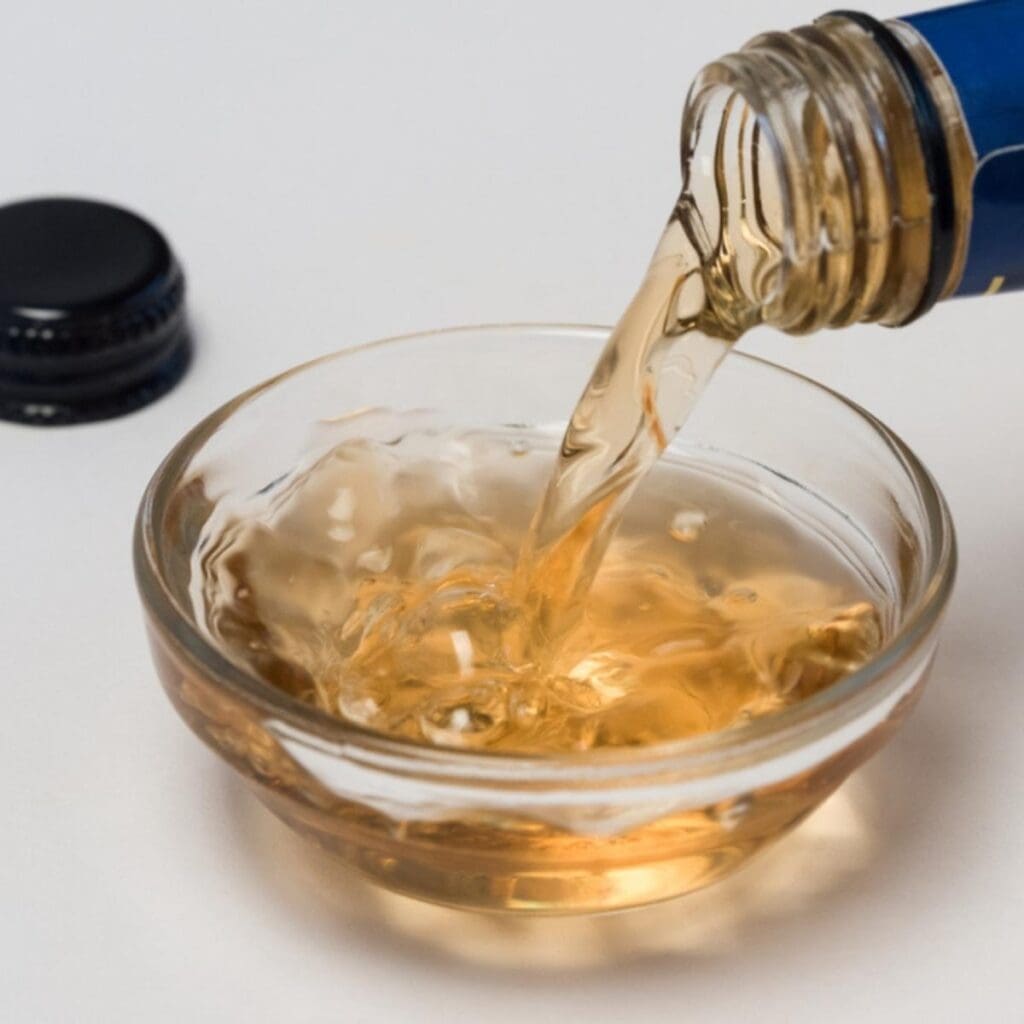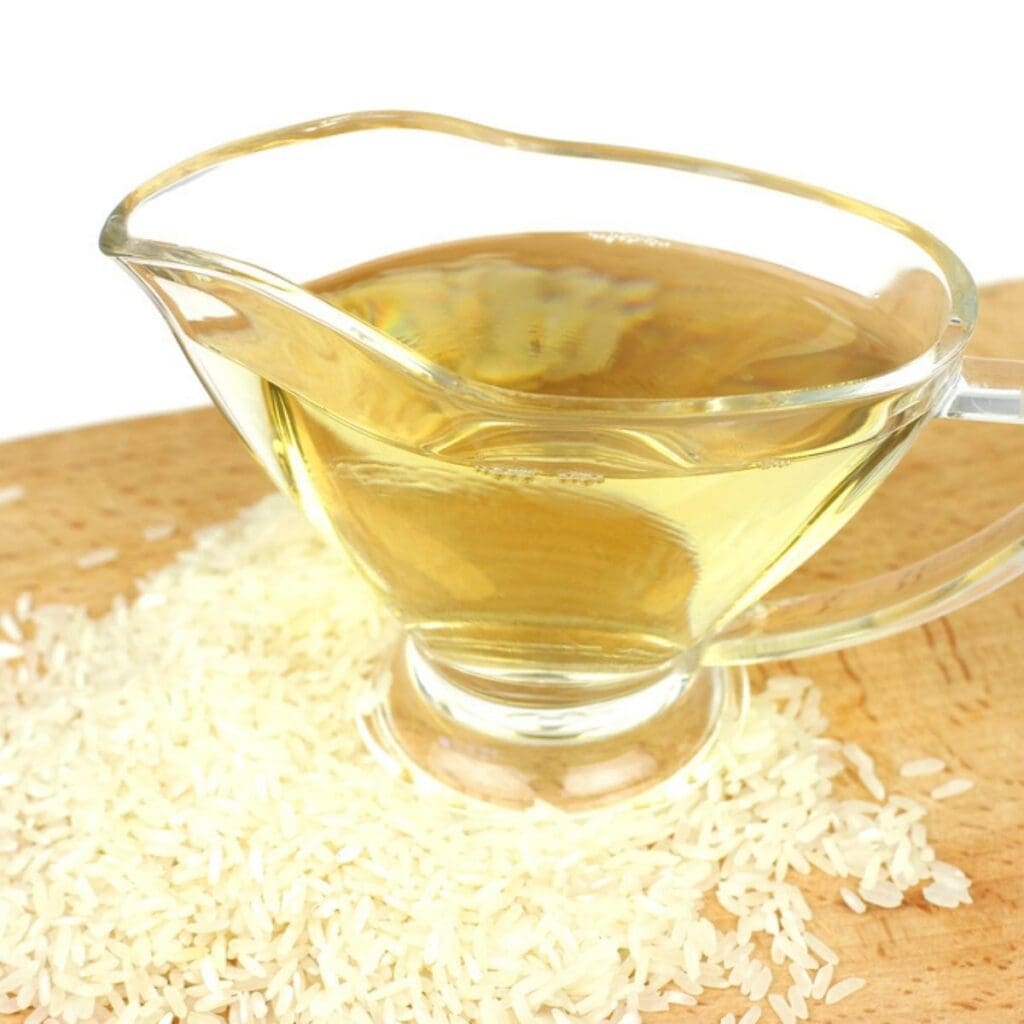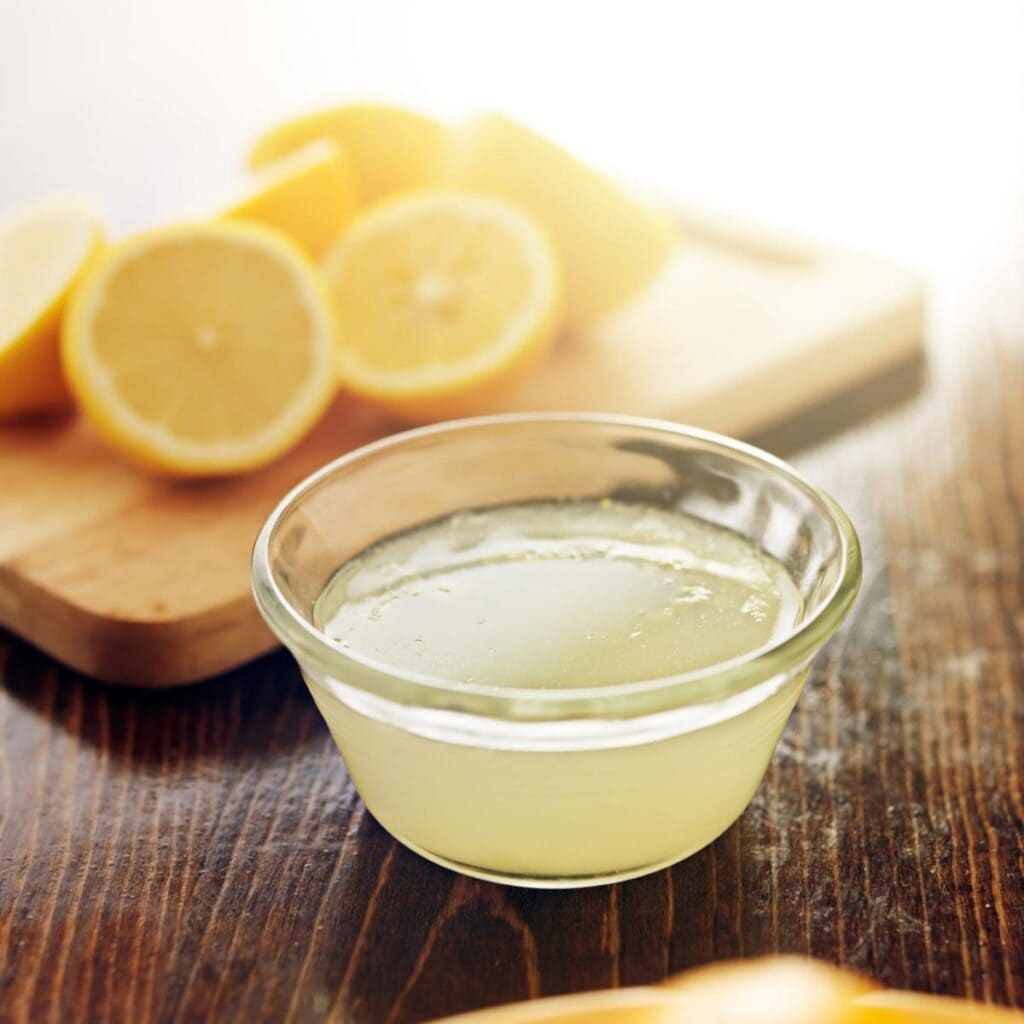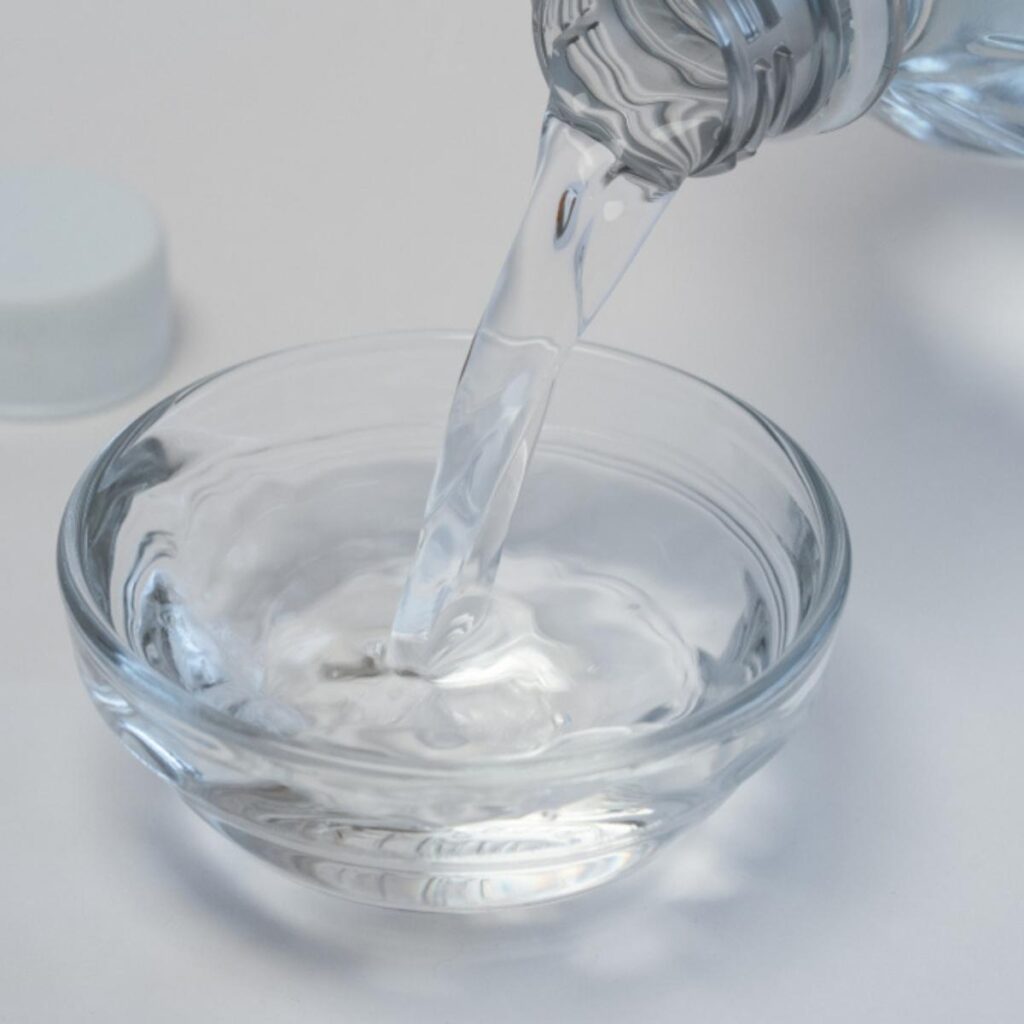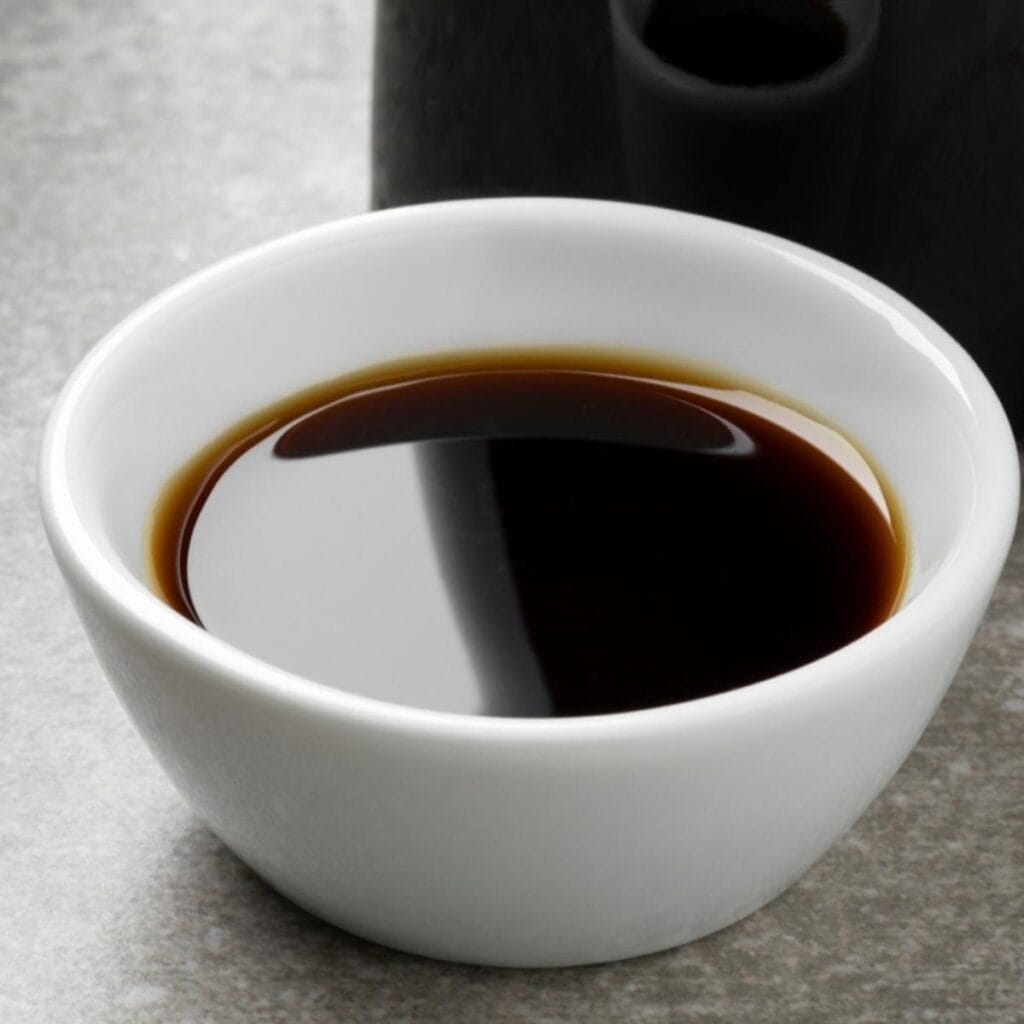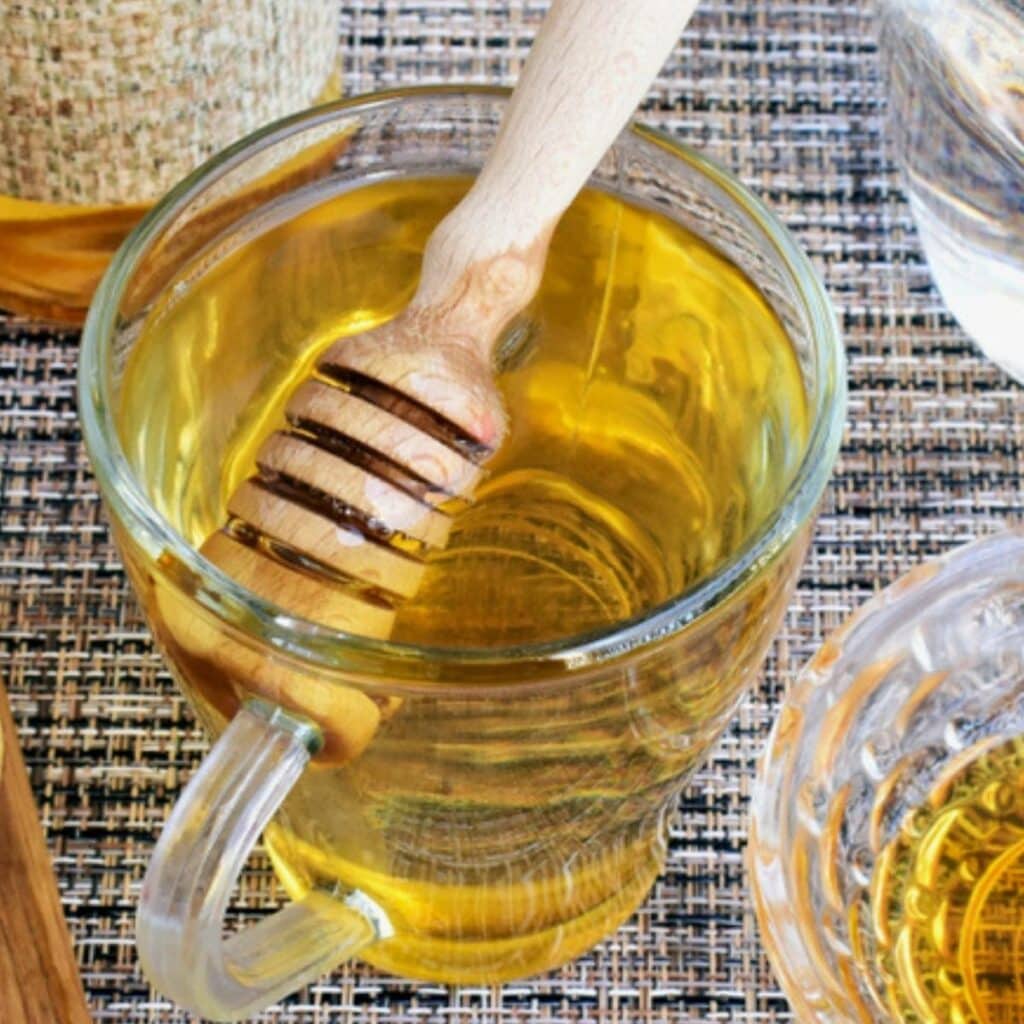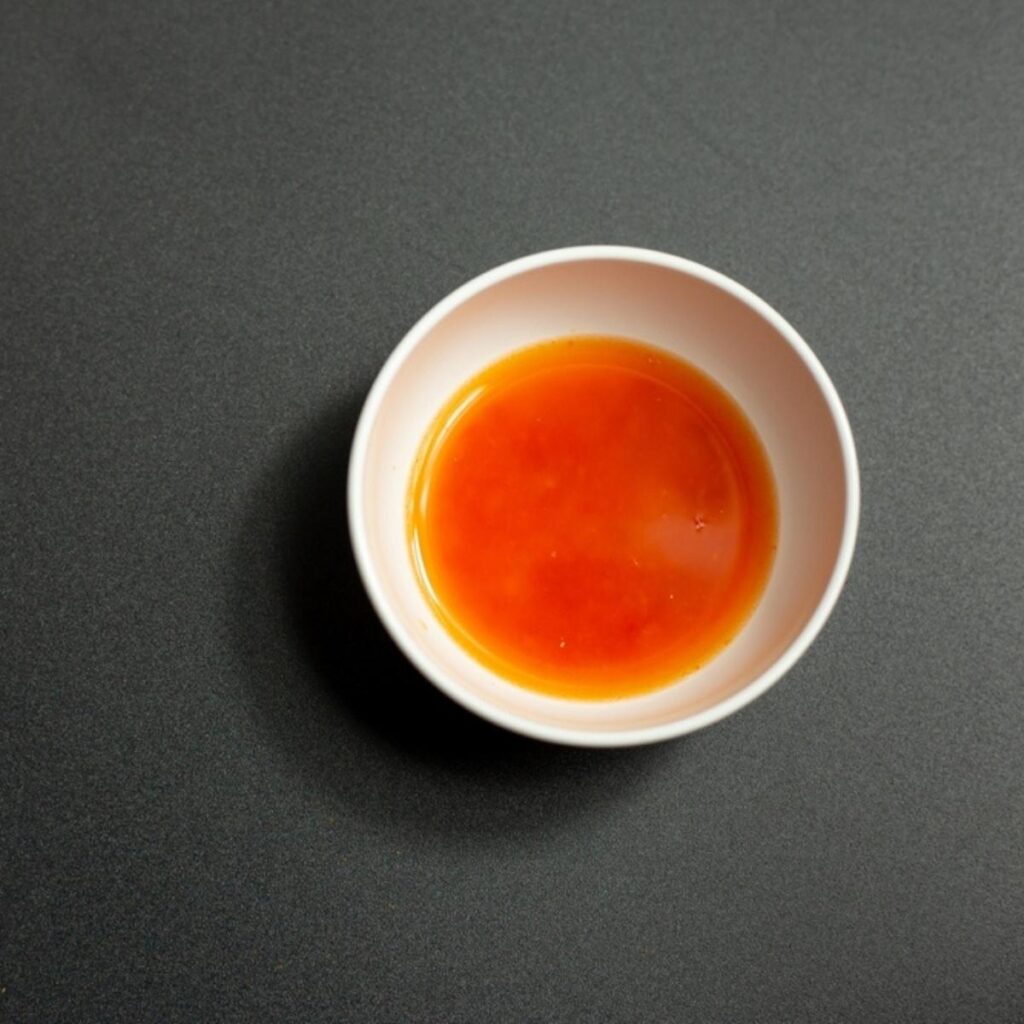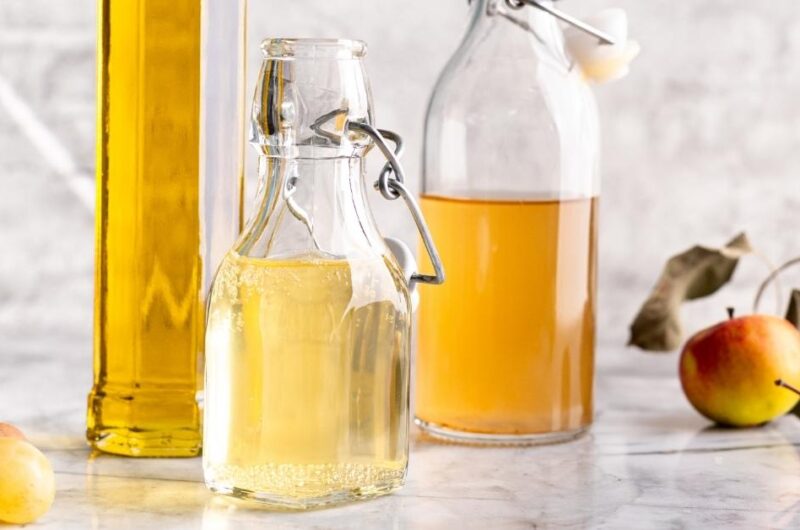From rice and sherry to balsamic and honey vinegars, there’s plenty to choose from. Just about everyone has a bottle of white wine vinegar in their pantry because it’s versatile and affordable. Plus, it’s just the thing for adding a touch of acidity to dressings, sauces, and marinades. But what do you do when you run out? Use something else, of course! If there’s one thing you must be while cooking, it’s flexible. So let’s check out some of the best white wine vinegar substitutes so you can finish dinner.
10 Easy Substitutes for White Wine Vinegar
The best replacements for white wine vinegar are vinegars mixed with other flavors. You’ll want that second flavor to be sweet or bright to help your dish retain its signature tangy taste. Champagne and red wine vinegars work best. However, you can move beyond alcohol for your flavor combo. For example, honey vinegar and rice vinegar make suitable replacements also. The following lists ten of the best white wine vinegar substitutes. I’ll also tell you how much of each you should add, so keep reading!
1. Champagne Vinegar
The best substitute for white wine vinegar is Champagne vinegar. The two smell and even look the same. And while their flavor profiles are slightly different, it’s not super noticeable. Champagne vinegar’s flavor is lighter, so you’ll need to add more of it when substituting for white wine vinegar. The general ratio is 1.5 to 1. That means, for every tablespoon of white wine vinegar, you’ll use 1.5 tablespoons of Champagne vinegar. Doing so will give you very similar flavors, especially in recipes that aren’t cooked (i.e., dressings).
2. Red Wine Vinegar
Champagne vinegar is the best substitute for white wine vinegar. However, red wine vinegar is probably its most common substitute. That’s because it’s so much easier to find. Just as white wine is more robust than Champagne, red wine is stronger than white. So, in most recipes, red wine vinegar will be a little more noticeable than white. Even so, you can still swap them out at a one-to-one ratio: use 1 tablespoon of red wine vinegar for every 1 tablespoon of white wine vinegar. You may notice subtle flavor differences. For example, recipes with red wine vinegar may be a little more acidic. Most people won’t notice, though, and if they do, they generally don’t mind. This replacement works best in dressings and marinades.
3. Apple Cider Vinegar
Apple cider vinegar is another popular substitute for white wine vinegar. Again, that’s because it’s convenient. In fact, it’s probably more common in most people’s pantries than white wine vinegar. You can substitute one tablespoon for one tablespoon. However, it has a tarter, zestier taste than white wine vinegar. And it may even add a slight fruitiness to some recipes. Therefore, it works best in recipes with bright, fresh flavors. Dressings and sauces benefit from it, but I don’t always enjoy it in marinades.
4. Sherry Vinegar
Sherry vinegar and white wine vinegar have similar flavor profiles, so it’s safe to use them interchangeably. Sherry is a little lighter and sweeter, but not by too much. It’s another one-to-one ratio substitution: 1 tablespoon of sherry vinegar for every 1 tablespoon of white wine vinegar. Like apple cider vinegar, it’s slightly fruity. Fortunately, that fruitiness isn’t nearly as noticeable in sherry vinegar. You can use this replacement in practically any recipe that calls for white wine vinegar.
5. Rice Vinegar
Rice vinegar is much more prevalent in Asian cuisine than American. Even so, you can use it instead of white wine vinegar in a pinch. It has a mildly sweet flavor and is less acidic than white wine vinegar. Still, it works as a one-to-one substitution for many recipes. Use an equal amount of rice vinegar in place of white wine vinegar. It works best in Asian recipes or recipes with a slight natural sweetness.
6. Lemon Juice
Lemon juice isn’t my favorite white wine vinegar substitute. Still, it will work if you’re in a bind. Lemon juice is naturally highly acidic. However, it also has plenty of bright, tart flavor. What it lacks is the sweet contrast that white wine vinegar has. So, I’d only use lemon juice as a last resort and only in foods that aren’t already too tart or zingy. Again, a one-to-one ratio will work (one teaspoon of lemon juice per one teaspoon of white wine vinegar.)
7. White Vinegar
Believe it or not, you can also use regular old white vinegar to replace white wine vinegar. However, to do so, you’ll have to do a little kitchen alchemy. Here’s the recipe you’ll need to replace one tablespoon of white wine vinegar:
3/4 tablespoons white vinegar1/4 tablespoon water1/8 to 1/4 teaspoon sugar (adjust to taste)
White vinegar has less natural sweetness than even pure lemon juice. Therefore, to make it an adequate substitute, you must add sugar. Just don’t overdo it.
8. Balsamic Vinegar
Balsamic vinegar has a much more robust flavor than white wine vinegar. So, though most experts say to substitute it using a one-to-one ratio, I think that alters the taste too much. I usually add only half the amount required when using balsamic vinegar. So you’ll need about 1/2 teaspoon of balsamic vinegar for every 1 teaspoon of white wine vinegar. I recommend starting there and adding more to taste. Otherwise, the balsamic might overpower your other ingredients.
9. Honey Vinegar
Honey vinegar isn’t something we use in the U.S. that often. It’s hugely popular in Italy, Spain, and other European countries, though. If you do happen to have some on hand, you’re in luck: it’s an easy one-to-one substitute for white wine vinegar. In fact, the two have very similar tastes. So 1 teaspoon of honey vinegar will easily replace 1 teaspoon of white wine vinegar. It’s not quite as spot-on as Champagne vinegar, but it’s close. And you can use it in practically any recipe that calls for white wine vinegar. (It makes an excellent marinade, too.)
10. Fruit Vinegar
Most people are familiar with apple cider vinegar. Fortunately, that’s not the only fruit-based vinegar you can buy. There are various fruit and berry vinegars, all with distinct flavors. So, if you have other fruit vinegars in your cupboard, try one of them. Of course, certain flavors work better than others. For example, orange vinegar and pear vinegar have lighter, brighter tastes. Therefore, they work better as replacements for white wine vinegar than plum or mango vinegars. Feel free to experiment with various fruit vinegar types. Most swap out at a one-to-one ratio. However, you may want to add less to begin with. I suggest you start with 1/2 teaspoon of fruit vinegar for every 1 teaspoon of white wine vinegar. Then, add more if you think it’s needed.
Other Great Substitutes to Keep On Hand
Red Wine Vinegar SubstitutesSoy Sauce SubstitutesButtermilk SubstitutesMirin Substitutes Click on a star to rate it!
Average rating 5 / 5. Vote count: 1 No votes so far! Be the first to rate this post.
Share on social media: Let us improve this post!



